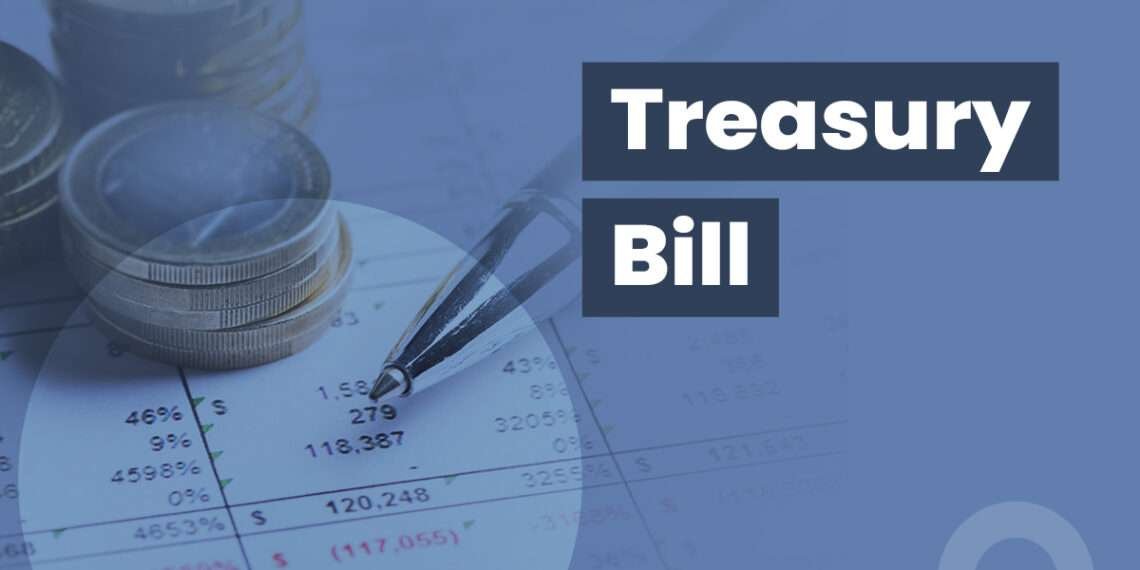Ghana’s government has been increasingly relying on short-term securities such as Treasury bills to meet financial obligations, a trend that has raised concerns among economists and financial analysts.
While these instruments offer quick access to funds, they come with drawbacks. The heavy reliance on short-term borrowing can lead to higher interest costs over time, diverting resources from crucial long-term investments.
The government raised nearly GH¢5 billion from the sale of treasury bills, marking an impressive 33.8% oversubscription.
The 91-day bill emerged as the preferred choice for investors, attracting bids totaling GH¢3.825 billion, representing a substantial 77.7% of the total offers.
Similarly, the 182-day bill garnered significant interest, with bids amounting to GH¢822.39 million, all of which were fully taken up.
Meanwhile, the 364-day bill saw bids worth GH¢272.62 million, all of which were also accepted by investors.
Concurrently, interest rates continued their downward trajectory, with the yield on the 91-day T-bill dropping by nearly 25 basis points to 25.0%. This decline indicates easing borrowing costs for the government in the short-term debt market.
Likewise, the interest rate on the 182-day bill decreased from 27.39% to 26.99% compared to the previous week, reflecting a noticeable reduction in medium-term borrowing costs.
In contrast, the yield on the 364-day bill remained relatively stable at 27.99%, signaling sustained investor confidence in longer-term government securities.
Concerns Over Government’s Short-Term Debt Reliance
Analysts widely anticipate that the government will maintain an aggressive borrowing strategy in the treasury market to support its expenditure needs.
However, the Director of the Institute of Statistical Social and Economic Research (ISSER), Professor Peter Quartey, said that the government’s continuous reliance on short-term instruments such as Treasury Bills (T bills) as the only source of funds to finance projects is not sustainable because “it could have dire consequences for the economy in the medium to long term.”

Frequent issuance of treasury bills can lead to a ballooning of public debt. As the government consistently taps into the short-term market to meet its financial obligations, it accumulates debt that needs to be repaid within a relatively short period. This can strain government finances in the long run and limit fiscal flexibility.
Moreover, over-reliance on short-term securities can distort interest rates and crowd out private-sector borrowing. When the government floods the market with treasury bills, it competes with private borrowers for available funds.
This increased demand can drive up interest rates, making it more costly for businesses and individuals to borrow for investment and consumption purposes.
Additionally, relying heavily on short-term borrowing exposes the government to interest rate risk. If interest rates rise unexpectedly, the cost of servicing and rolling over existing debt can escalate rapidly, putting further strain on public finances.
Furthermore, this practice may signal underlying fiscal weaknesses and raise concerns about the government’s ability to manage its budget effectively without resorting to continuous short-term borrowing.
As such, while treasury bills serve as a convenient tool for governments to meet immediate financing needs, sustained reliance on these instruments can pose risks to the economy in terms of debt sustainability, interest rate dynamics, and overall fiscal management.
However, the current surge in demand for treasury bills especially the 91-day bill underscores improved investor confidence in the government’s ability to manage fiscal obligations and navigate economic challenges effectively.
The evolving market dynamics continue to shape investment decisions, with treasury bills emerging as a preferred asset class for risk-averse investors seeking stable returns in uncertain times.
READ ALSO: Mistrust And Tensions Run High As NDC And EC Spar Over Voter Registration



















